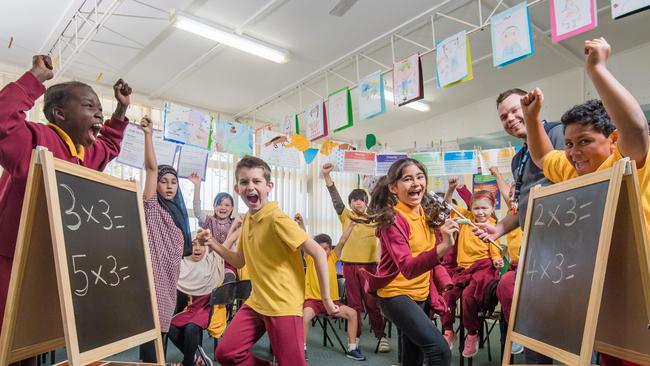OECD has nothing useful to teach us

It beggars belief that so soon after the Australian curriculum has been bedded down, and it is still impossible to know whether it has been effective in raising standards and providing an enriching and rigorous education, schools are about to undergo a new round of experimentation and change.
Even worse is that the proposed new national curriculum will draw heavily on the OECD’s project The Future of Education and Skills 2030 and, according to Rob Randall, chief executive of the Australian Curriculum, Assessment and Reporting Authority, will be ready in 18 to 24 months.
So much for consultation and transparency.
The OECD’s Learning Framework 2030 repeats all the cliches and politically correct language used to justify forcing nebulous 21st-century learning on schools. The world is “rapidly changing”, and we now live in a world characterised by “a new explosion of scientific knowledge” and “complex societal problems”.
At the same time that societies are “changing rapidly and profoundly” we are facing myriad threats and challenges, including: global warming, the depletion of resources, growing “inequalities of living standards” and the impact of “migration, urbanisation and increasing social and cultural diversity”.
As a result of an uncertain and unpredictable future the OECD’s Paris-based bureaucrats argue schools around the world must adopt its globalist groupthink and prepare students “for jobs that have not yet been created, for technologies that have not yet been invented, to solve problems that have not yet been anticipated”.
In this “new ecosystem of learning” the purpose of education is to enable students “to contribute to and benefit from an inclusive and sustainable future”. Students are described as “change agents” and “future-ready” and 21st-century classrooms are those “where everyone should be considered a learner, not only students but also teachers”.
In this brave new world of uncertainty and unpredictability the OECD educrats argue the school curriculum must embrace “co-agency”, “personalised learning” and “competencies to transform our society and shape the future”.
Instead of teachers teaching, they are told to adopt collaborative, negotiated goal setting where the classroom is characterised by “interactive, mutually supportive relationships that help learners to progress towards their valued goals”.
Even though there is minimal, if any, evidence proving the benefits of this approach, the OECD model argues teachers must allow students to “design their own learning projects” in collaboration with others. Worse still, much like the dumbed down and substandard Gonski 2.0 report on how to achieve educational excellence, the OECD’s Education 2030 model prioritises competencies to the exclusion of the subject disciplines that have stood the test of time and that form the foundation of any education worth its name.
The OECD’s preferred competencies include: using knowledge and information interactively, relating and co-operating with others, managing and resolving conflicts, acting autonomously, forming and conducting life plans, creating new value and taking responsibility. Such competencies represent a content-free approach to the curriculum that is guaranteed to further lower standards.
The OECD rationale for placing competencies centrestage is also guilty of a false dichotomy when arguing that a liberal view of education based on the established disciplines is only concerned with “the basic reproduction of accumulated knowledge”.
By arguing its competencies go well “beyond taught knowledge and skills”, those responsible for the OECD approach ignore the reality that a liberal approach to education is deeply imbued with an ethical and moral framework.
Such a framework empowers students to be creative, critical minded and able to relate to and co-operate with others, and none of these skills is new to schools and teachers.
A liberal education is based on what Matthew Arnold describes as “the best that has been thought and said” and what the Victorian Blackburn report describes as “our best validated knowledge and artistic achievements”.
As such it also teaches students the difference between right and wrong, what constitutes the good life and the importance of reason, rationality and truth.
Unlike these postmodern times where knowledge is subjective and relative, or simply an expression of power, a liberal education also champions Enlightenment concepts such as empiricism and the scientific method.
Since the 2011 release of the original Gonski report the debate has been about establishing a fair and equitable funding approach: one no longer based on the flawed model that disadvantages Catholic schools.
Equally important, if not more, is defining the purpose of education and what constitutes the officially mandated curriculum. It is also vital that schools and teachers have a degree of ownership instead of being dictated to by distant OECD bureaucrats far removed from the realities of Australian classrooms.
Kevin Donnelly is a senior research fellow at the Australian Catholic University and author of How Political Correctness is Destroying Education (Wilkinson Publishing forthcoming).


